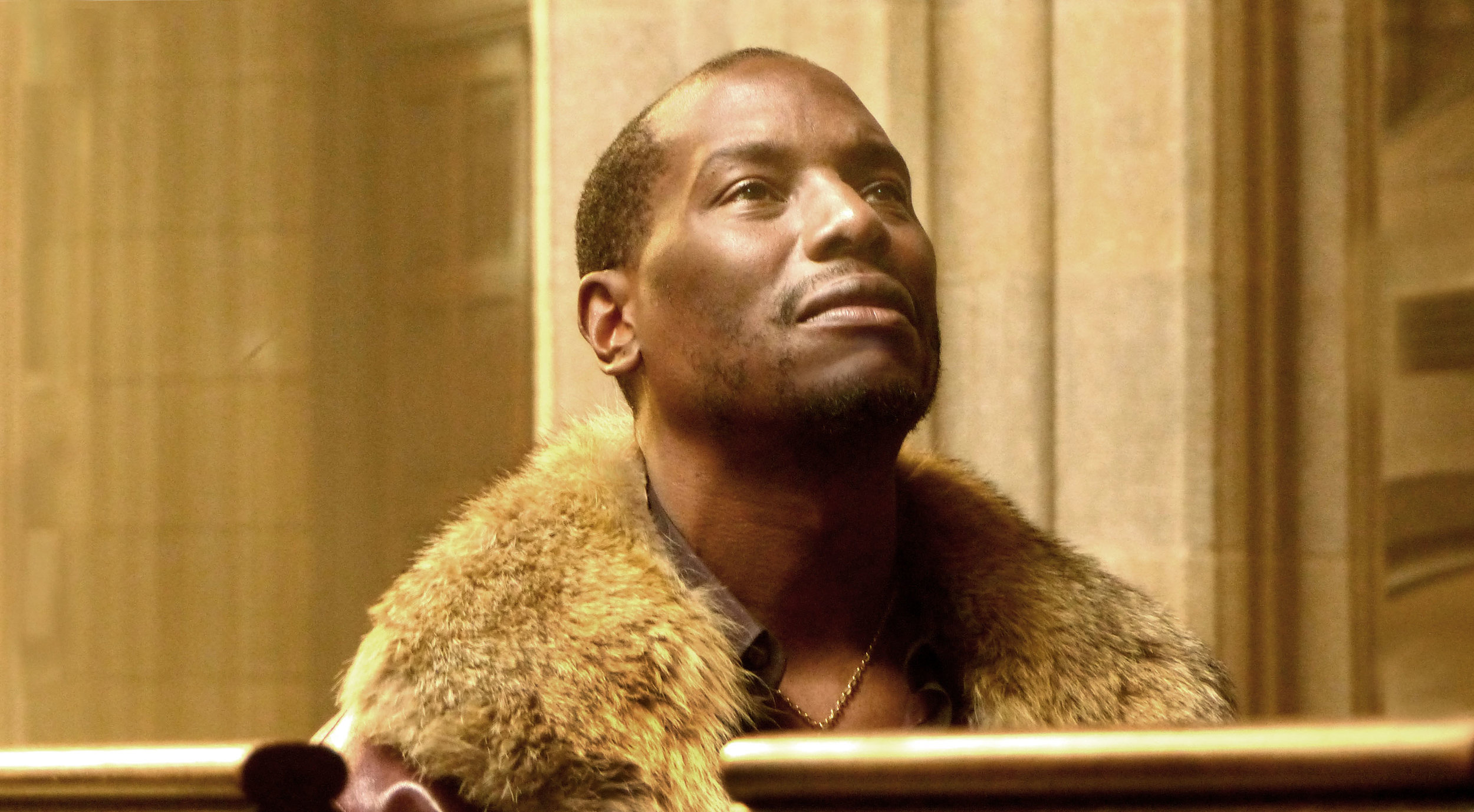
“We make ourselves free by the choices we make.” The inaugural season of WGN America’s stunning series “Underground” followed the Macon 7 as they made their harrowing escape from the shackles that bound them to the Macon Plantation in Georgia, to the free states in the North. A captivating series that has shined a bright light on the Underground Railroad, the horrific and morally corrupt antebellum South, and the abolitionist movement, the second season of “Underground” is out to prove that season one wasn’t even the tip of the iceberg. With higher stakes, heart-shattering storylines and the emergence of real-life historical figures, season two fleshes out the movement in a whole new way.
In late January, I traveled to Los Angeles, California to screen the first episode of the new season of “Underground” and to chat with the cast and crew ahead of the season premiere. I sat down and spoke with the series’ creators and writers, Misha Green and Joe Pokaski, director Anthony Hemingway, and cast members Jurnee Smollett-Bell (Rosalee), Aldis Hodge (Noah), Jessica De Gouw (Elizabeth), Alano Miller (Cato), and Amirah Vann (Ernestine). Season two newcomers, Jasika Nicole (Georgia) and Aisha Hinds (Harriet Tubman) were also present to discuss America in 1858, the high stakes of the series, and the challenges they faced as actors delving into this tumultuous period.
Aramide Tinubu: Jurnee, what was it like to step back in Rosalee’s shoes after seeing her go through so much in the first season of the series? Did it affect you differently because you were pregnant while filming?
Jurnee Smollett-Bell: It was definitely unlike anything I’ve ever done before. Physically, “Underground” is already the most physically challenging role I’ve ever done in my life. But, then to be seven months pregnant doing it. (Laughing) Luckily I had a great support team. But, I love Rosalee so much, and I think she’s just changed so drastically. She’s grown up; she’s a woman now. Not only is she a woman, but she is a warrior and a soldier when we see her in season two. I think she always instinctively had that, but now out of desperation she had no choice but for it to come out. She’s lost everyone that she loves, Noah, her mother, her brothers, the Macon 7. Even though she’s attained her own freedom, she realizes that it’s not so free. How can she really live in the North when everyone else is in bondage? So, when she meets up with Harriet; Harriet trains her to be a solider, and that’s what she’s become; gun-slinging Rosalee.
AT: Aldis, what always gets me about Noah is the fact that he is constantly fighting for freedom, he never stops. He’s always got a plan; he’s always got something up his sleeve. How do you get into the mindset to play someone who is always searching for more, who is always trying to figure his way out of a situation?
Aldis Hodge: I’m always searching for more in my real life. (Laughing) Coming up where I came from and especially being in this business for such a long time, it’s always a fight going on. You have to readjust your strategy as the times change or as you change personally. So, going into this, I really just try to play into the fact that Noah’s fight comes from his idea of himself. He understands his value. I carry this character knowing that he walks as if he is free. Mentally he knows he is free; he knows his value, he knows who he is as a man. He just has to convince everyone else around him. But, knowing your worth set in a situation where all they do is take it and try to strip that from you, you’re going to be a little bit aggressive. You’re going to be agitated and a little bit feral, but at the same time, he has to be strategic with how he goes about it. I just carry him knowing that he is free and he understands exactly who and what he is, given the time frame.
AT: Was there a specific moment that really shocked you during this season? I know there are always twists and turns, but was there anything that really stunned you to your core and shifted the way you understand your character?
JSB: Oh boy, yeah.
AH: (Laughing) There are some moments we can’t talk about just yet. But the answer is YES, and you’ll see it later on in the season.
JSB: I know that as Rosalee, I end up doing a lot of questionable things. Just like Ernestine knows how to work the system, we see that Rosalee knows how to as well. But sometimes in doing that you hurt the people closest to you. Even though your intentions are very pure. In your mind, you’re justifying yourself because you love them. So there are a lot of risks, a lot of secrets and a lot of questionable actions. In the first episode, one thing that did actually emotionally shock me to my core was the scene with John, when Rosalee is yelling at him about Noah. John has this naïveté that somehow the justice system is going to be just for a man that looks like Noah. As I was saying these words, I realized, “Oh my gosh! I could be saying this right now! How many of my brothers and how many of my sisters could I be saying this about?” That was just something where it was like, “Man. Yes, we come far, but we’ve got so far to go!”
AT: Let’s talk about the women of “Underground.” For Amirah what shocked me the most about Ernestine’s storyline in the first episode of this season was seeing how violence gets permeated back down into the Black community. It’s the violence against Black people in general and then with your character specifically, Black men towards Black women. How did you feel during that scene?
Amirah Vann: One of my favorite scenes is actually between Robert C. Riley who plays Hicks and myself later on in the season when Ernestine actually brings that up. So Misha and Joe brilliantly address those issues of how race in America in a grand scheme is affecting the daily lives of everyday individuals. It’s always so interesting to say, “I know, I get what you’re trying to say. I don’t know if I can digest it and apply it to my everyday life.” But, the idea that the writers are aware of how that permeates everyday life, I think it’s just brilliant writing.
Continue reading at Shadow and Act.
Image: WGN America






 After saying goodbye to “Criminal Minds” earlier this year, actor Shemar Moore is stepping into a new role, funding and producing his first feature film, “The Bounce Back.” Moore stars alongside Nadine Velazquez and Bill Bellamy in this warm, romantic comedy about love, intimacy, and second chances. Moore recently chatted with me about his new role as a producer, what inspired him to step behind the scene, the current state of independent filmmaking and what’s next for him.
After saying goodbye to “Criminal Minds” earlier this year, actor Shemar Moore is stepping into a new role, funding and producing his first feature film, “The Bounce Back.” Moore stars alongside Nadine Velazquez and Bill Bellamy in this warm, romantic comedy about love, intimacy, and second chances. Moore recently chatted with me about his new role as a producer, what inspired him to step behind the scene, the current state of independent filmmaking and what’s next for him.
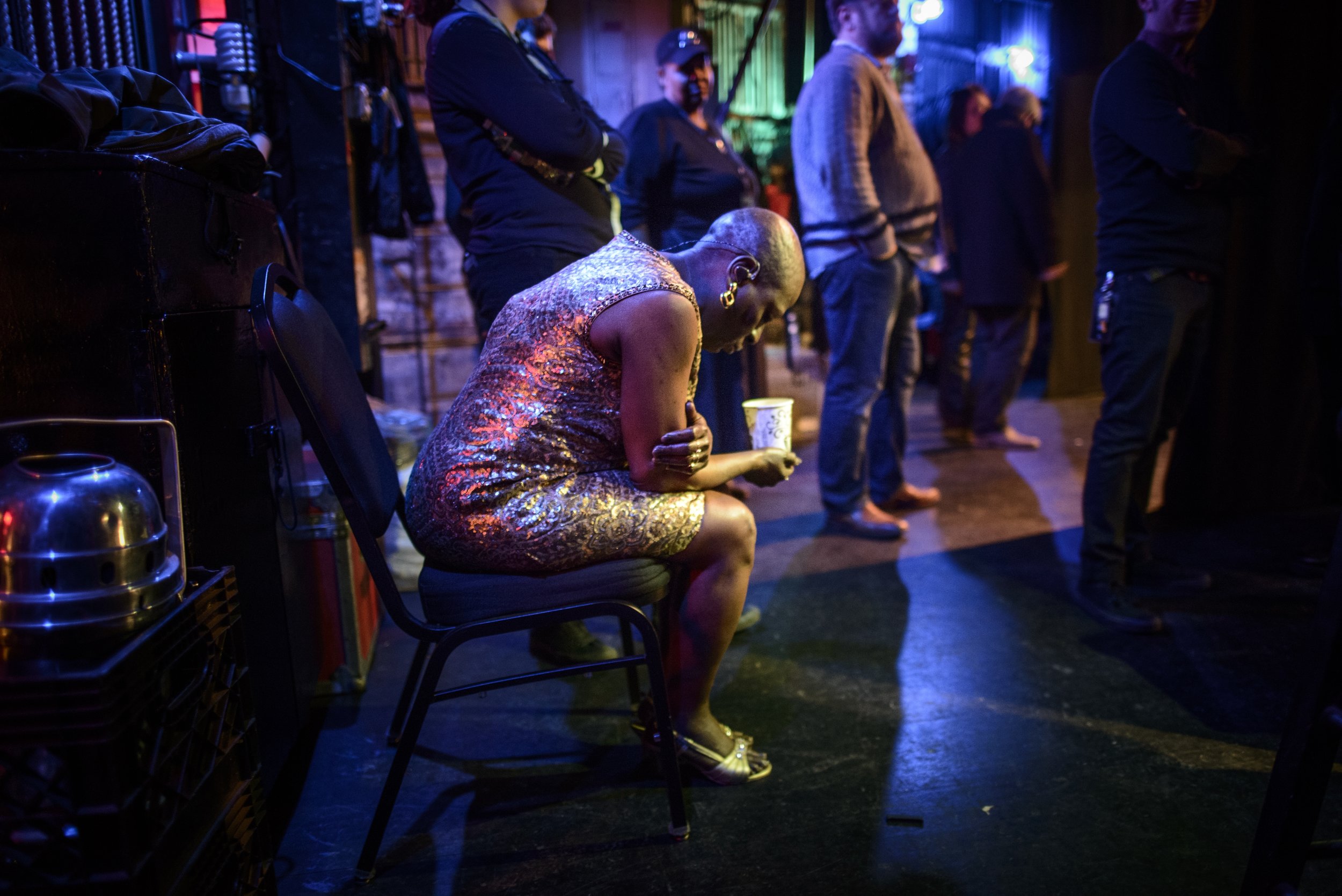 For twenty years, soul singer Sharon Jones has cultivated a world-wide audience with her sensational albums, performances and stunning voice. Sharon Jones & The Dap-Kings have been heard in everything from FitBit commercials, to Martin Scorsese’s “The Wolf Of Wall Street” soundtrack. Though her career took off later in life, it’s clear that Ms. Jones has always belonged onstage. At the height of her career in 2013, Ms. Jones was soaring, until a devastating cancer diagnosis forced her to pause. During one of the toughest years of her life, Academy Award winning filmmaker Barbara Kopple followed Ms. Jones and The Dap-Kings in the stunning and captivating “Miss Sharon Jones!”.
For twenty years, soul singer Sharon Jones has cultivated a world-wide audience with her sensational albums, performances and stunning voice. Sharon Jones & The Dap-Kings have been heard in everything from FitBit commercials, to Martin Scorsese’s “The Wolf Of Wall Street” soundtrack. Though her career took off later in life, it’s clear that Ms. Jones has always belonged onstage. At the height of her career in 2013, Ms. Jones was soaring, until a devastating cancer diagnosis forced her to pause. During one of the toughest years of her life, Academy Award winning filmmaker Barbara Kopple followed Ms. Jones and The Dap-Kings in the stunning and captivating “Miss Sharon Jones!”.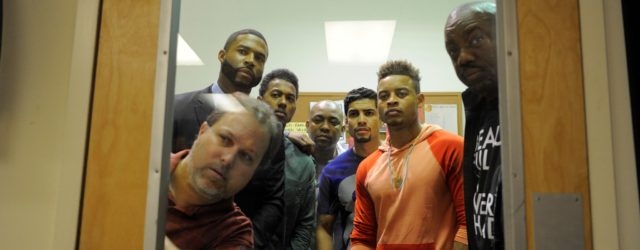 My father was not perfect. A Nigerian immigrant born in the late ‘40s, he had his work cut out for him raising two little girls on the South Side of Chicago during the ‘90s. Naturally we butted heads quite often. Some days our arguments stemmed from our cultural differences, other days it was simply normal tensions that brew between daughters and their fathers. Despite all this, there are memories that I have of him that will remain with me until the day I take my last breath. From school science projects and “Harry Potter”, to my love and obsession for films, my father was pivotal in molding me into the woman that I am now. When I laid him to rest on a bitterly cold day the year I turned twenty-three, I knew that despite everything, he’d done the best that he could. Unfortunately, there are millions of people, especially in the Black community that cannot say the same about their fathers.
My father was not perfect. A Nigerian immigrant born in the late ‘40s, he had his work cut out for him raising two little girls on the South Side of Chicago during the ‘90s. Naturally we butted heads quite often. Some days our arguments stemmed from our cultural differences, other days it was simply normal tensions that brew between daughters and their fathers. Despite all this, there are memories that I have of him that will remain with me until the day I take my last breath. From school science projects and “Harry Potter”, to my love and obsession for films, my father was pivotal in molding me into the woman that I am now. When I laid him to rest on a bitterly cold day the year I turned twenty-three, I knew that despite everything, he’d done the best that he could. Unfortunately, there are millions of people, especially in the Black community that cannot say the same about their fathers.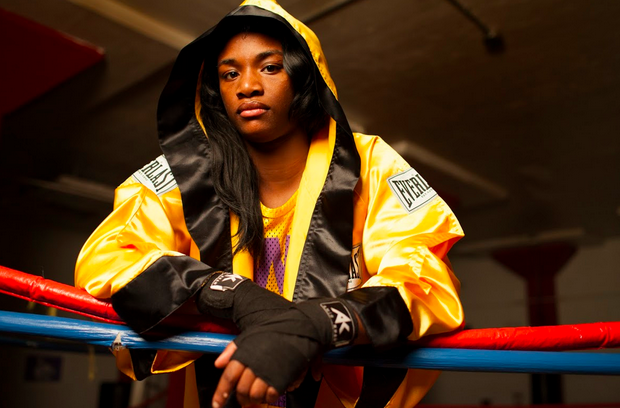
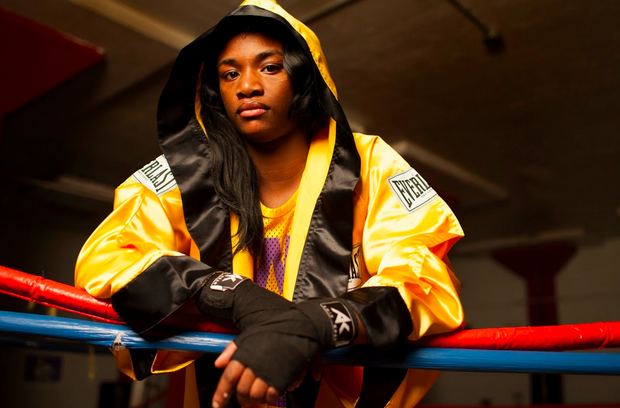 Every few days, I bargain with myself in an effort to get to the gym for some much needed exercise. As I pull on my gym shoes, I marinate over how I will reward myself for pushing through a three-mile run, or an Insanity class. I sweat solely for my health; I am no athlete. Still, my attitude towards fitness has vastly improved in the last decade. When I was seventeen, breaking a sweat ranked somewhere around leaving my relaxer in too long, or getting my cell phone taken away. It was literally one of the last things I wanted to do.
Every few days, I bargain with myself in an effort to get to the gym for some much needed exercise. As I pull on my gym shoes, I marinate over how I will reward myself for pushing through a three-mile run, or an Insanity class. I sweat solely for my health; I am no athlete. Still, my attitude towards fitness has vastly improved in the last decade. When I was seventeen, breaking a sweat ranked somewhere around leaving my relaxer in too long, or getting my cell phone taken away. It was literally one of the last things I wanted to do.
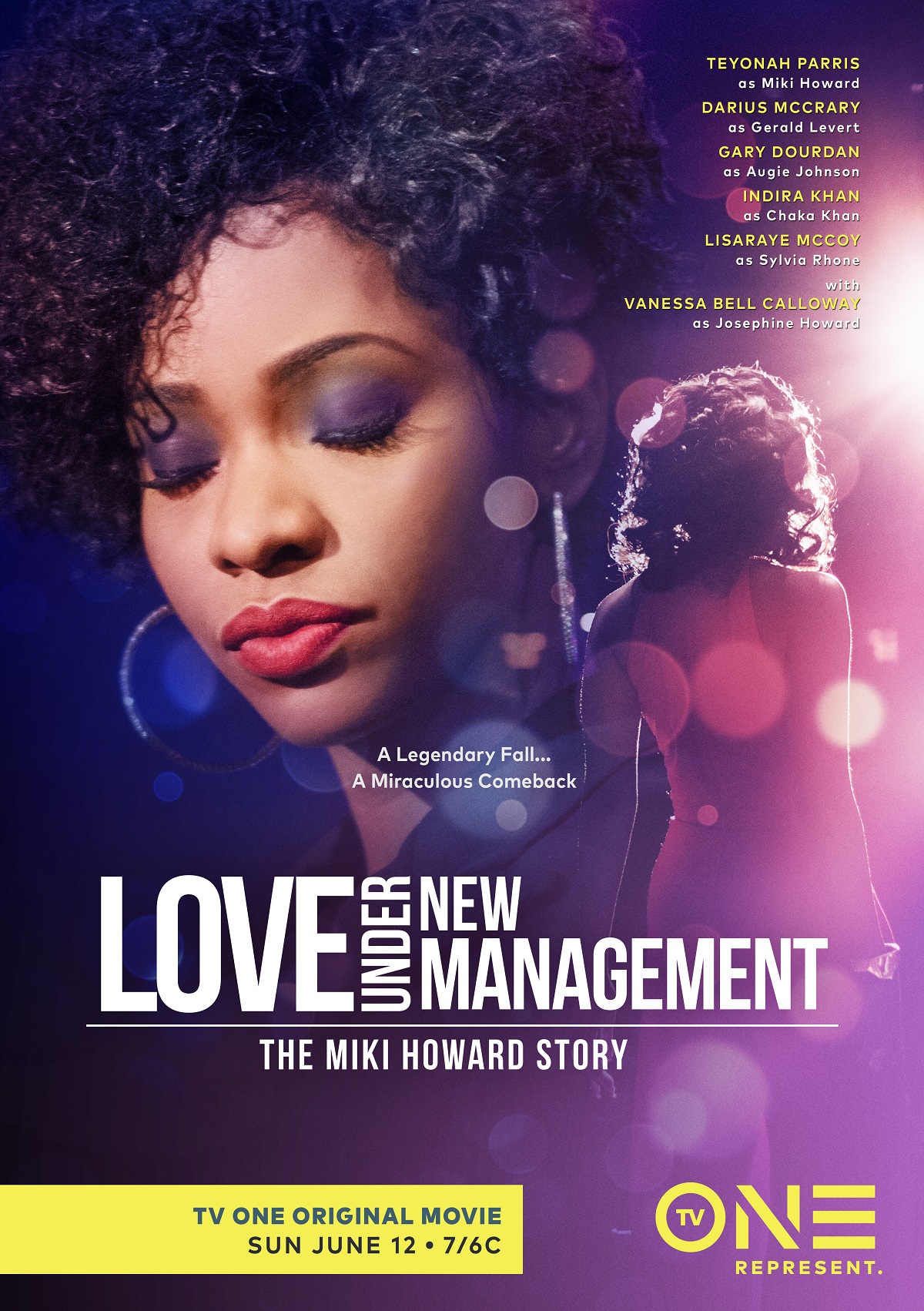 There are some songs that when played, take us back to a specific time or place. Miki Howard’s “Come Share My Love” reminds me of my childhood; riding in the car with my mother while Miki’s stunning voice smoothly glided out of the radio. For years, I never knew much about the songstress herself. However, when TV One’s “Unsung“ episode surrounding Miki Howard aired in 2010, I along with the rest of the world, was enraptured not just by her stunning music and success, but also by her turbulent personal life.
There are some songs that when played, take us back to a specific time or place. Miki Howard’s “Come Share My Love” reminds me of my childhood; riding in the car with my mother while Miki’s stunning voice smoothly glided out of the radio. For years, I never knew much about the songstress herself. However, when TV One’s “Unsung“ episode surrounding Miki Howard aired in 2010, I along with the rest of the world, was enraptured not just by her stunning music and success, but also by her turbulent personal life.
